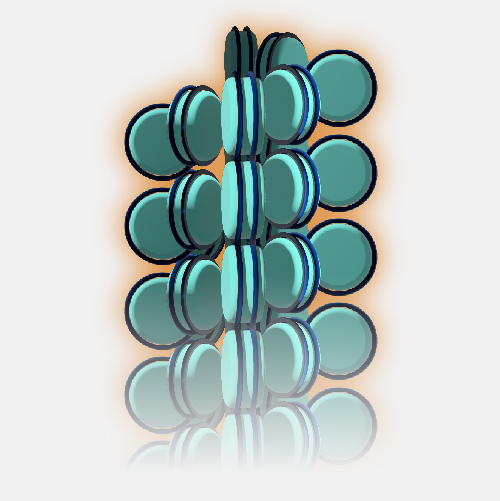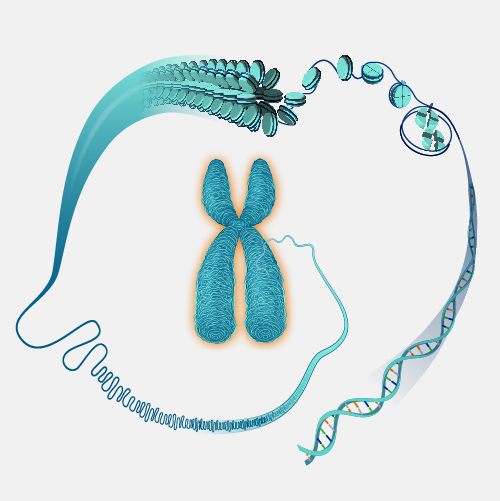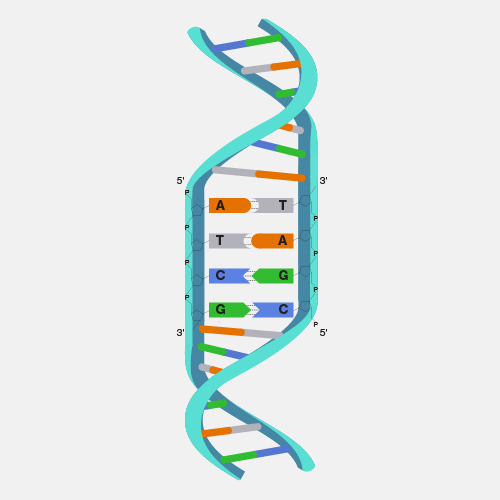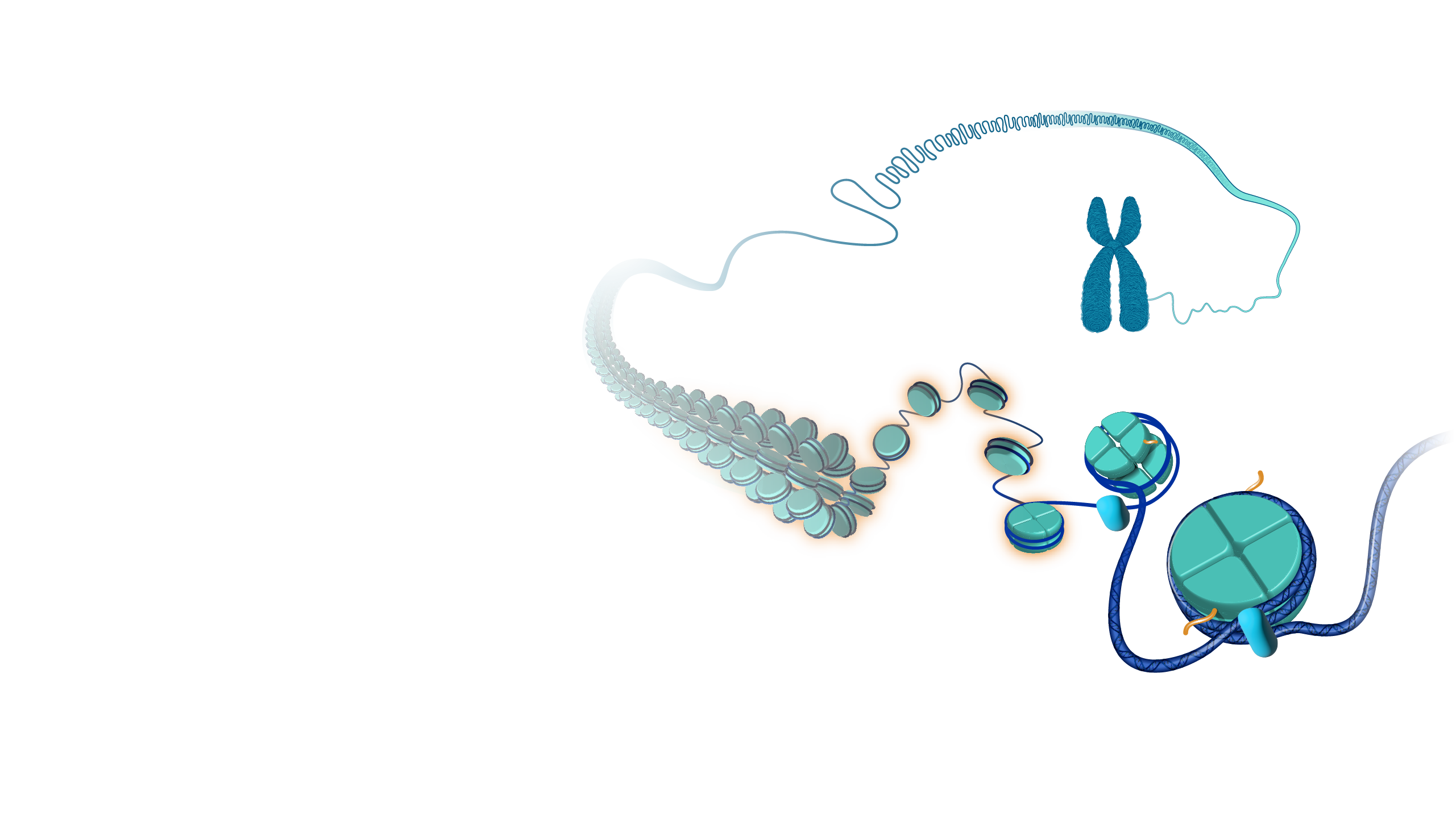
Nucleosome
Definition
A nucleosome is the basic repeating subunit of chromatin packaged inside the cell’s nucleus. In humans, about six feet of DNA must be packaged into a nucleus with a diameter less than a human hair, and nucleosomes play a key role in that process. A single nucleosome consists of about 150 base pairs of DNA sequence wrapped around a core of histone proteins. In forming a chromosome, the nucleosomes repeatedly fold in on themselves to tighten and condense the packaged DNA.
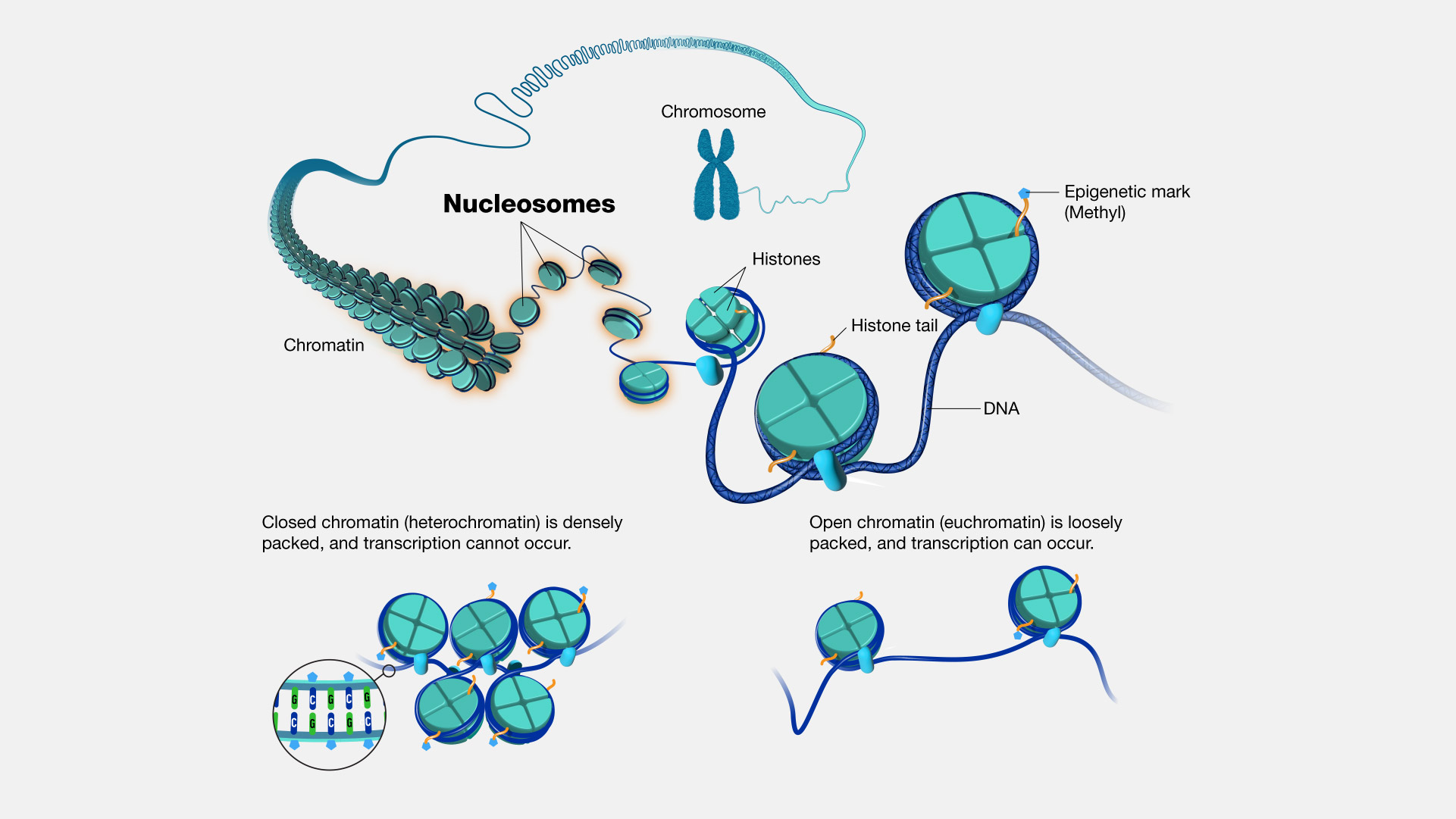
Narration
Nucleosome. Nucleosomes do a lot of things in our genomes. One of the most important is keeping chromosomes neatly organized and packed away. If you think about a tent that you might use to go camping, when you are storing it or carrying it from one place to another, it is tightly folded up so that it can fit in your backpack or on your bicycle. When it is time to use the tent, you unfold it and open it up so you have a shelter. Our DNA needs to be neatly folded up when it is in our cells so it doesn't get in the way when it isn't immediately being used, kind of like a folded tent. When our DNA is needed for something, maybe the cell needs to read the DNA or make a copy of it, a cell unfolds the DNA kind of like we'd unfold our tent. Nucleosomes are one of the main structures that help keep our DNA folded up neatly and packed away or help to unfold it.



